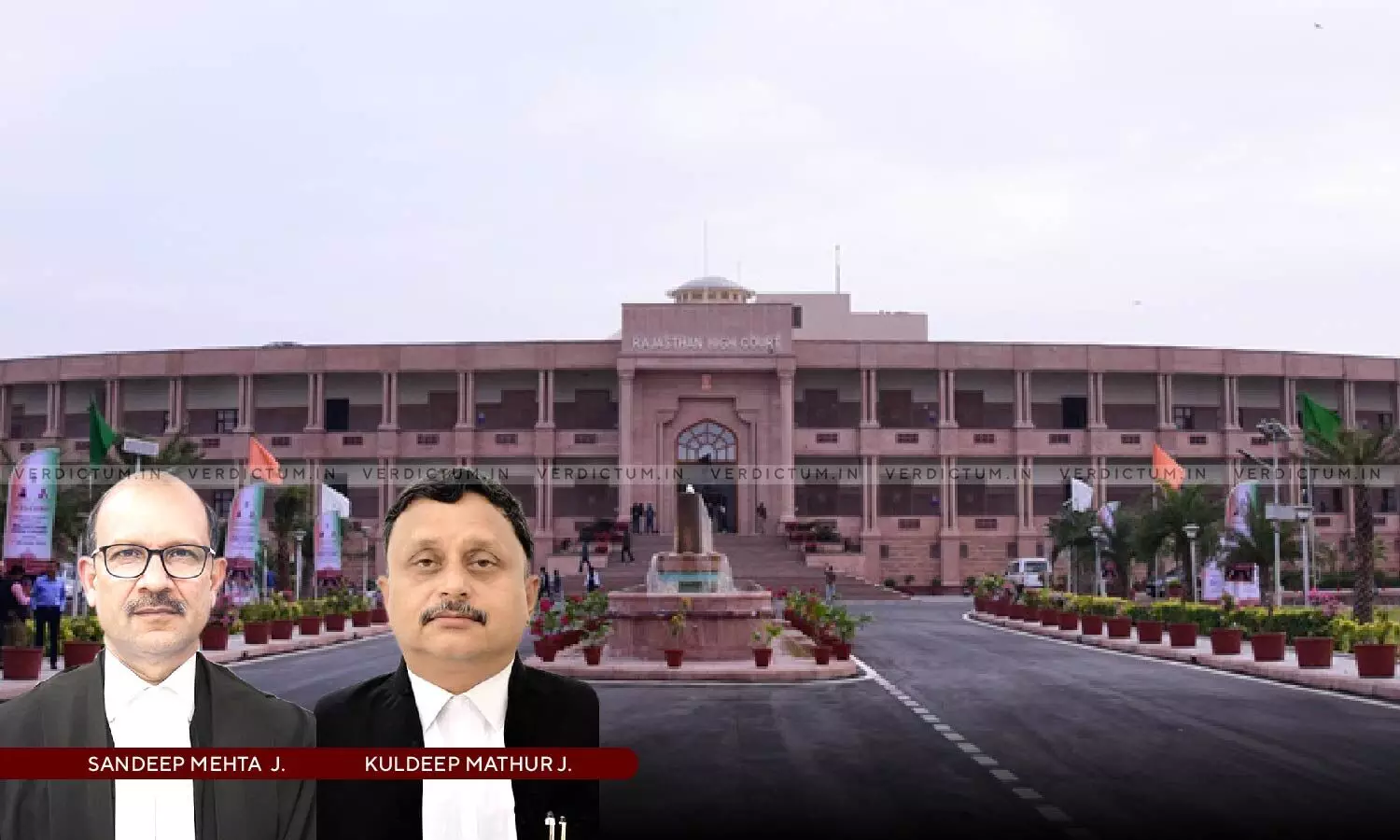
Child Of Second Wife Of Deceased Employee Is Eligible For Compassionate Appointment- Rajasthan High Court
 |
|The Rajasthan High Court (Jodhpur Bench) observed that a child born from the second wife of the deceased employee is eligible for the compassionate appointment.
The bench of Justice Sandeep Mehta and Justice Kuldeep Mathur relied upon the decision of the Apex Court in the case of Union of India vs. V.R. Tripathi reported in (2019) 14 SCC 646 and observed that "The exclusion of one class of legitimate children from seeking compassionate appointment merely on the ground that the mother of the applicant was a plural wife of the deceased employee would fail to meet the test of a reasonable nexus with the object sought to be achieved."
In this case, the appellant filed the Special Appeal and challenged the order of a Single Judge whereby the writ petition filed by him seeking compassionate appointment in the Jai Narayan Vyas University in lieu of his deceased father, was rejected.
The facts of the case are-
- That the appellant's father died while working as a 'Tabla Vadak' with the Jai Narayan Vyas University in December 2004, and the appellant and respondent no. 4 (born through the second wife of the deceased) applied for the appointment on compassionate grounds.
- The Respondent University considered both the applications, extended compassionate appointment in favor of respondent no.4 as per the provisions of the Rajasthan Compassionate Appointment of Dependents of Deceased Government Servant Rules, 1996.
Advocate B.L. Swami appeared on behalf of the appellant and submitted that the second marriage of the deceased employee with the mother of the respondent no. 4 was doubtful and therefore, the compassionate appointment should not have been offered to him. It was also submitted that appellant was fully eligible and entitled to be considered for compassionate appointment in place of deceased employee, however, illegally ignoring his right of claiming compassionate appointment as per Rules of 1996, the respondent No.4 has been appointed on compassionate grounds.
Senior Advocate Rajesh Panwar and Advocate Mudit Vaishnav appeared on behalf of the respondent and submitted that indisputably, respondent No.4 is son of deceased employee and Smt. Kamla Devi therefore, he was fully eligible to seek employment in the respondent-university upon the death of his father. It was also submitted that the competent authority, after receiving applications for compassionate appointment from more than one dependent of the deceased employee thoroughly considered the financial position and educational qualifications possessed by the applicants before reaching to the conclusion that respondent No.4 deserved to be appointed as Class-IV employee in the respondent-university.
The Court relied upon the decision of Apex Court in the case of Mukesh Kumar & Anr. vs. Union of India (2022) 2 JT 346 and observed that a policy for the compassionate appointment cannot discriminate against a person on the ground of descent by classifying the children of deceased as legitimate of illegitimate and said that "a policy for compassionate appointment, which has the force of law, must not discriminate on any of the grounds mentioned in Article 16(2), including that of descent. In this regard, descent must be understood to encompass the familial origins of a person which would include the validity or otherwise of the marriage of the parents of a claimant for compassionate appointment and the claimant's legitimacy as their child".
Further, the Court also expressed that in view of the provisions of the Rajasthan Compassionate Appointment of Dependents of Deceased Government Servants Rules, 1996, it can be concluded that the application submitted by respondent No.4 seeking compassionate appointment could not have been rejected by the respondent- university solely on the ground of him being child from the second wife.
Accordingly, the Court dismissed the Special Appeal filed by the appellant.
Cause Title- Hemendra Puri v. The Jai Narayan Vyas University, Jodhpur & Ors.
Click here to read/download the Judgment